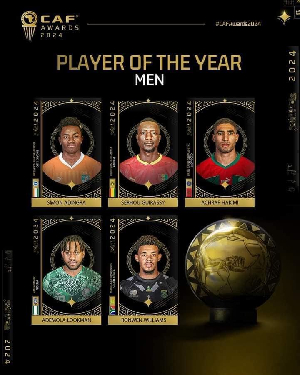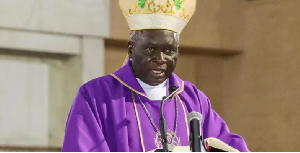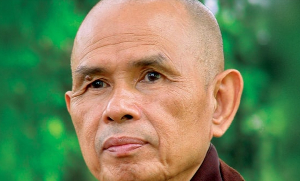iWatch Africa, a not-for-profit organisation, is calling for an overhaul of the current police oversight approach by the Police Intelligence and Professional Standards Unit (PIPS) of the Ghana Police Service to address misconduct of police officers.
iWatch Africa holds that the current arrangement is not robust enough to ameliorate misconduct among police officers. The call is line with findings of Accountability, Rule of Law and Anti-Corruption Program (ARAP) which also identified many lapses in the PIPS model.
Through our project “Leveraging the Power of Data and Digital Tools to Stop Human Rights Abuse: iWatch Africa, Police and CHRAJ Collaboration,” iWatch Africa held a month-long town hall awareness meeting with motorists, commuters and the police. During the public engagement forums and review of the current PIPS structure, we found that over the years, several factors have coalesced to weaken the police oversight system thereby inhibiting the Police Service’s ability to effectively deal with complaints from the public concerning police misconduct and corruption.
The lapses identified include but not limited to; weak independence and transparency, obsolete operational and complaint system as well as financial constraints. These constraints, unfortunately, have impaired the quality of work of PIPS resulting in plummeted public trust and confidence in the Service’s ability to deal with police misconducts.
In 2017, ARAP, through its report titled, “Improving Professional Standards in the Ghana Police Service” came to a similar conclusion about PIPS. In particular, the report opined that “the mandate given to PIPS in 2005 has become obsolete, insofar as it refers to functions that the agency has never performed.”
iWatch Africa agrees with this findings and holds the position that PIPS’ mandate as defined by the Standing Order No 5 (2005) fall short of the international benchmark set by United Nations for independence, transparency and accountability needed in investigating complaints against police officers.
Moreover, the challenges of PIPS require fixing, given the impact the unit can have on police discipline in the country. iWatch holds that addressing the PIPS challenges mustn’t be ephemeral so as to minimise reform blips. However, from our thorough examination of the challenges confronting the current PIPS oversight model, iWatch Africa believes that altering the existing structure to meet the UN criteria of best practices would be herculean task after a decade of inefficiency and ineffectiveness.
iWatch Africa, therefore, proposes a Hybrid system that brings on board citizens on all matters relating to investigation and prosecution of police misconduct. The singular action, we think, would help restore rectitude of the service and public confidence in the ability and willingness of the police to deal with police misconducts. The “Police Citizen” approach offers the best value for money.
Hybrid Model - “Police Citizen” approach
The Hybrid Model (Civilian-Police) of police oversight utilises the expert and impartial knowledge of Citizens in investigating any police misconduct. The blend of Police and Citizen is expected to increase accountability, transparency and improve public confidence in the Service. Ultimately, we hope that such an approach would enhance the integrity of Police Officers and policing in Ghana. It’s also expected to bring visibility to how police deal with complaints about policing (receipt, investigation and follow-up).
The Police Service is a vital institution with responsibility under law to maintain public order and safety of persons and properties. In performing these duties, the interaction between the police and citizenry is a constant occurrence. Through our routine surveys, many of our constituents have alleged police corruption of one form or the other. Also, several CSOs have come to similar conclusions on alleged police corruption and abuse of power. This, we belief impugn the integrity of the police service, which is a threat to the rule of law and undermines Ghana’s democracy.
For instance, eighty percent of Ghanaians surveyed by Afrobarometer in 2017 had a negative perception of the police regarding abuse of power and corruption. Surveys published by the Ghana Integrity Initiative in 2017 cited the Police Service as the most corrupt institution in Ghana.
Enhancing police accountability and integrity is primarily meant to establish, restore or enhance public trust and (re-)build the legitimacy that is a prerequisite for effective policing in Ghana.
iWatch Africa, after a careful review of several police oversight institutions around the world, offers a distilled range of recommendations to the Parliamentary Select Committee on Security to lead the needed reforms in the police service.
We recommend that the core characteristic of our proposed Hybrid-Model should be ‘Independence.’ We suggest the following guidelines modelled after the United Nations Handbook on Police Accountability, Oversight and integrity.
Criteria for independence:
• Complete discretion in the exercise of functions or powers
• Statutory underpinning
• Reporting to the parliament
• Independent funding
• Transparent processes, based on merit, for the appointment of commissioners and staff, strict procedures for removal and fixed period in office.
The newly proposed model must be unambiguous in its mandate. As a minimum, the independent oversight body must do the following:
• Have the capacity to receive complaints directly from the public (as well as from members of the government)
• Record all complaints filed against police (whether submitted at the police station, police headquarters, prosecutor’s office or directly to the independent body)
• Have the capacity to start an investigation on its own initiative and prosecutorial powers.
• Have sufficient investigative powers to assess the case in hand, including:
? The power to hear any person and subpoena powers
? The power to obtain any information required, including the authority to access police dockets and to conduct searches and seizures
? The power to compel the presence of witnesses including the police
? The power to prosecute
• The capacity to offer witness protection
• Have the power to recommend further penal or disciplinary action
• Have the capacity to make recommendations for structural change, hence enabling the police to prevent the recurrence of misconduct
• Have the capacity to follow up on its recommendations.
• To publish its findings and recommendations, including the response received from the police bi-annually
• To compel the police to disclose the reasons for not following up on the recommendations
• To make public failure by the police to follow up on its recommendations
Establishing an independent oversight structure must not be the last step. The structure must be monitored for both the quality of its service delivery and its impact on police performance so that it can identify problems and their causes and try to improve its performance. Effective police accountability involves many different actors representing the different layers of modern-day democracies, including government representatives, the parliament, the judiciary, civil society actors and independent oversight bodies such as CHRAJ. We must all play an active role to improve governance and promote police accountability in Ghana.
Press Releases of Tuesday, 14 July 2020
Source: iWatch Africa

















